Another wintry day passes and it’s another gloomy, dreary, grey day with howling wind and lashing rain. In the depths of winter, it is tempting to spend the days huddled in our warm houses away from the outdoor elements. Furthermore, in the age of tablets, games consoles and mobile phones, children can be reluctant to leave their homes to explore the outdoor environment.
A survey of 12,000 UK parents last year for laundry detergent manufacturer, Persil, revealed that one in two children in the UK spend less than an hour a day outside, which is an hour less than the time prisoners are guaranteed to have in the outdoors. It’s a sad state of affairs, especially when you consider that children who spend more time outdoors will generally thrive. We all know that children in the summer will benefit from a Vitamin D boost when playing outside, but what are the benefits of outdoor play all year round?
1. Playing Outdoors Can Help Relieve Stress

There have been numerous studies on the benefits of spending time outdoors for mental health, with young people being particularly susceptible to the positive impact it can have. It’s not just adults who suffer from stress. Children can get anxious and stressed as well, especially when in a school environment. Popping along to the park for an hour after school is a great way of relieving that tension. If it’s wet then bring some wellies and waterproofs to the school gates and go for a splash in the puddles.
2. Physical Activity Is Beneficial For Your Child’s Learning
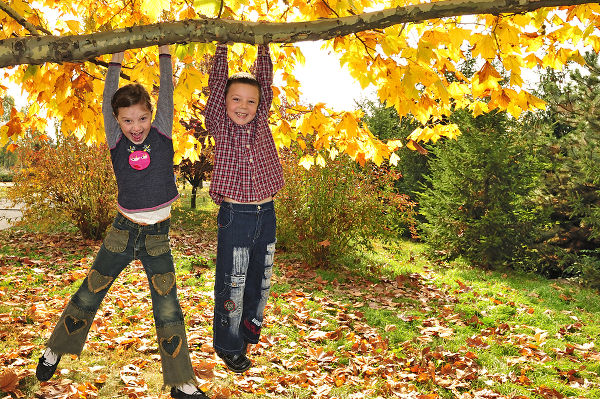
You are probably aware that physical activity is paramount for your child’s health. A child who is fit and healthy will be less likely to develop serious diseases when they are older. However, exercising and playing outdoors can also have benefits in the classroom. Studies have shown that children who regularly exercise outdoors can concentrate better and are less distracted during lessons. Furthermore, climbing activities, such as monkey bars in the park or climbing trees, will strengthen your child’s upper body, and this, in turn, will help with the fine motor skills required for handwriting.
3. Outdoor Play Encourages Creativity
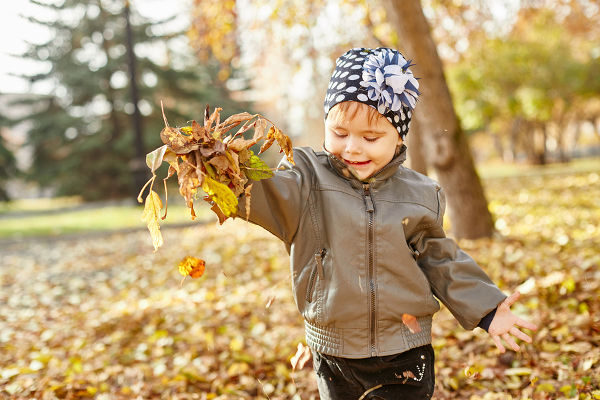
Whilst you might have plenty of toys in the home that will help your child’s imagination, taking your child outside into a natural area will stretch their creativity levels much further. Your child could build a den with friends and family, play a game of hide and seek, or imagine that they are intrepid explorers wanting to see what mysteries the forest holds for them. A stick can become a sword or a wand, a bush could hide an exotic creature or scary monster, whilst a hole in a tree trunk could be a door to a hidden pixie world. The possibilities are endless.
4. Your Child Will Sleep Better After Playing Outdoors

Time and time again fresh air has been shown to have a positive impact on our ability to fall asleep. Getting a good night’s sleep is vital to your child’s growth and development and too much screen time will almost certainly hinder their ability to sleep well. Spend some time each day in the park, woods, or beach to ensure your child is able to sleep better at night.
5. Outdoor Play Can Help Your Child’s Eyesight
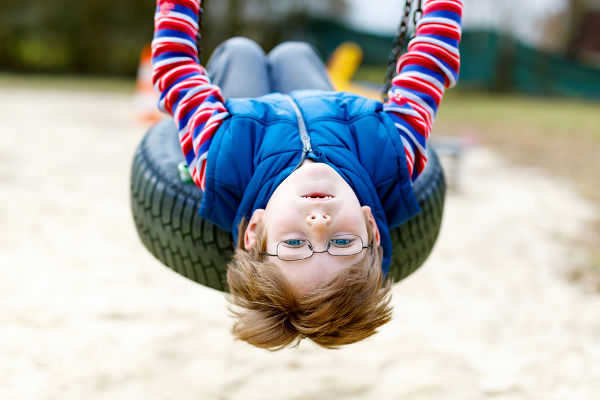
There have been a substantial number of studies that have demonstrated a correlation between a child playing outside and the chances of that child developing myopia, AKA, short-sightedness. Whilst the reasons for this correlation are unknown, it has been shown that it’s not simply a case that children who do lots of physical activity are less likely to develop the condition, as further studies compared the difference between children who played outside and those who did sports inside. Additional research may be needed, but in the meantime, it’s certainly another benefit to consider.
6. Outdoor Play Will Enhance Your Child’s Problem-Solving Skills
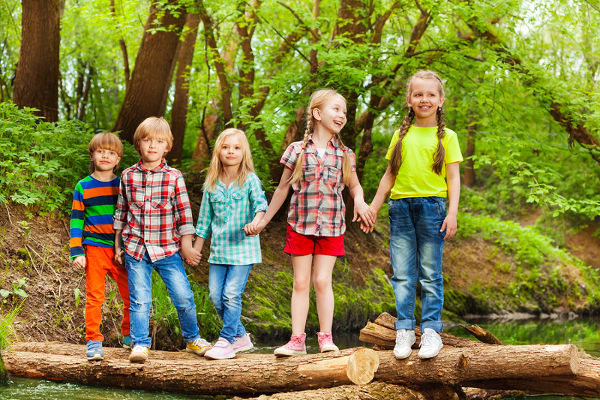
Playing in a park or a natural environment will give your child a unique set of circumstances that will test their problem-solving abilities. For example, what is the quickest way up the climbing frame or tree? How do I navigate along this path with the stream flowing across it? The ability to work out solutions to new problems will be vital for your child as they grow over and encouraging outdoor play is one way you can help your child develop this skill.
7. Outdoor Play Provides A Sensory Experience & Memories To Last A Lifetime
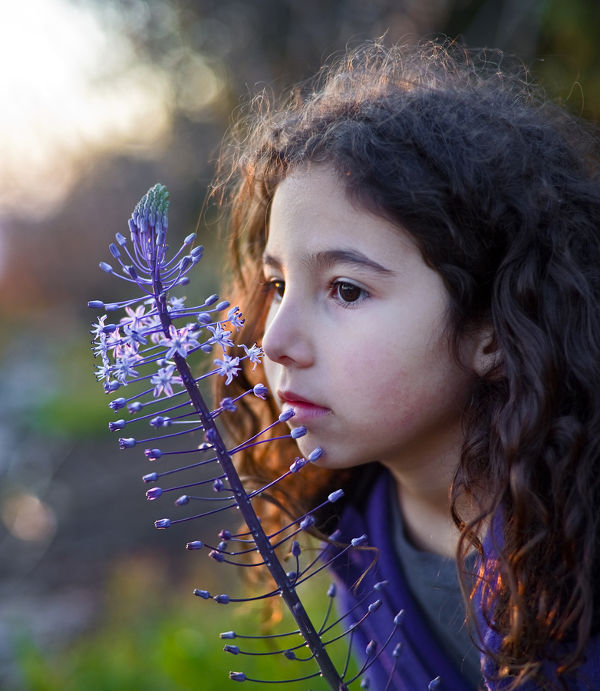
Playing outdoors is an opportunity for your child to experience a range of sensory experiences that won’t be found indoors. For example, the sound of birds chirping in the woods or leaves and twigs crunching under feet. Or perhaps the smells of freshly cut grass, pine needles, and wild garlic. Your child can touch different textures, such as rough bark, tickly grass, or smooth pebbles. Your child can feel the sensation of wind swishing against their cheeks and raindrops plopping onto their heads. All of these sensations will shape the moment, meaning that when your grown-up child looks back at the time they spent with you, these are the moments they are most likely to remember, and to cherish.




